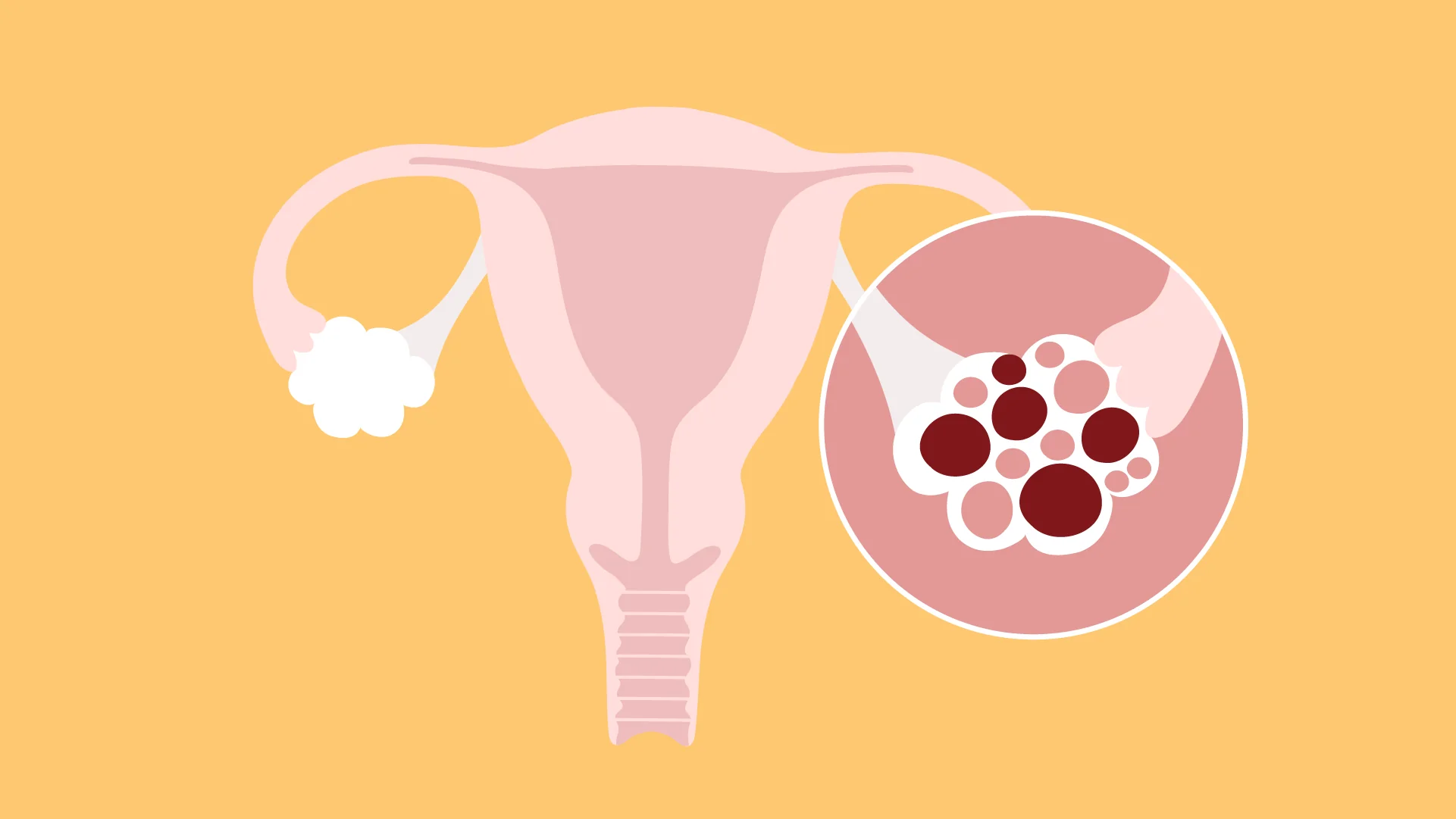What is polycystic ovary syndrome (PCOS)?
Polycystic ovary syndrome (PCOS) is a set of symptoms caused by a problem with a woman’s hormones. It affects the ovaries. These are the small organs that store a woman’s eggs. But it can also affect the rest of the body. PCOS is a very common condition in women of childbearing age. In some cases, it can lead to serious health issues if not treated.
Polycystic ovary syndrome (PCOS) is a common hormonal condition that affects women of reproductive age. It usually starts during adolescence, but symptoms may fluctuate over time. PCOS can cause hormonal imbalances, irregular periods, excess androgen levels and cysts in the ovaries. Irregular periods, usually with a lack of ovulation, can make it difficult to become pregnant. PCOS is a leading cause of infertility.
Key facts
- Polycystic ovary syndrome (PCOS) affects an estimated 6–13% of reproductive-aged women.
- Up to 70% of affected women remain undiagnosed worldwide.
- PCOS is the commonest cause of anovulation and a leading cause of infertility.
- PCOS is associated with a variety of long-term health problems that affect physical and emotional well-being.
- PCOS runs in families, but there are ethnic variations in how PCOS manifests itself and how it affects people.
Symptoms
The symptoms of PCOS may include:
-
Missed periods, irregular periods, or very light periods
-
Ovaries that are large or have many cysts
-
Extra body hair, including the chest, stomach, and back (hirsutism)
-
Weight gain, especially around the belly
-
Acne or oily skin
-
Male-pattern baldness or thinning hair
-
Infertility
-
Small pieces of extra skin on the neck or armpits (skin tags)
-
Dark or thick skin patches on the back of the neck, in the armpits, and under the breasts
How we diagnose PCOS
Our doctors typically diagnose polycystic ovary syndrome by performing a physical exam and other tests using state-of-the-art tools. Understanding exactly how PCOS affects your body helps us guide your treatment.
Tests may include:
Blood tests check hormone levels to assess ovary function.
Glucose tolerance test looks at how your body responds to sugar to predict your risk of diabetes.
Risk assessment measures glucose, fat and cholesterol levels in the blood to predict your risk of diabetes and heart disease.
Ovarian ultrasound produces detailed images of your ovaries to identify cysts.
PCOS treatments we offer
At Anandmayee Polyclinic, we treat the full spectrum of polycystic ovary syndrome, from mild to severe. Experienced OB/GYN and reproductive endocrinologists take the time to understand your symptoms, needs and goals, so we can improve your quality of life with PCOS.
Treatment generally focuses on balancing your hormones to ease symptoms. Our experts may recommend treatments such as:
Acne medication: Oral contraceptives, creams or antibiotics can help clear your skin.
Hair growth therapy: Medications that reduce or slow androgen production, along with creams applied directly to the skin, help stimulate hair regrowth.
Hair removal therapy: Medications, electrolysis or laser hair removal can reduce or remove unwanted hair.
Medication for irregular uterine bleeding: Excess estrogen can cause the uterine lining to thicken and bleed. Oral contraceptives (birth control pills) and/or progesterone supplementation help restore the lining to its normal condition. Rarely, surgery is needed when medication doesn't help.
Customized treatment to reduce future health risks
Preventing disease is an essential component of any treatment plan for polycystic ovary syndrome. We evaluate your PCOS symptoms, such as increased weight gain, and find ways to help you address them.
To reduce your risk of conditions such as diabetes and heart disease, your treatment plan may involve lifestyle management techniques. These include weight loss, nutrition support and exercise plans. Our team may also recommend medications to manage insulin and cholesterol.
Consult Dr. Anandmayee Sinha
OB/GYN and hormone specialist provides coordinated, comprehensive diagnosis and treatment of polycystic ovary syndrome. Our skilled doctor understand the importance of addressing your specific needs and preferences, especially when it comes to fertility care.




